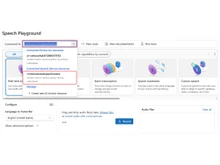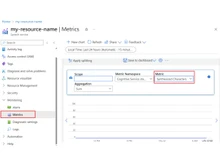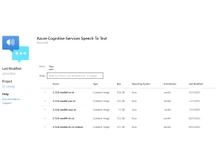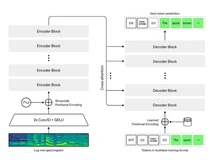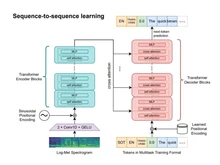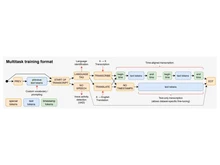Microsoft Azure Speech Services and Whisper are two of the speech recognition software solutions in the market. Both provide real time translation and transcribe spoken language into written text correctly. The two are alike in largely concerning both multiple languages and real-time transcription. While Microsoft Azure Speech Services is famous for its ability to integrate with cloud, Whisper is appraised for being open-source and scalable. Automatic speech recognition system assists machines to take speech input from human beings and transcribe it into text which simplifies communication in various fields. In this comparison, we will see the differences between them so that you decide what to choose.
Microsoft Azure Speech Services vs Whisper: An Overview
Microsoft Azure Speech Services is a speech recognition as a service solution that operates in cloud environment. It provides live captioning, voice recognition and language translation. It is compatible with Microsoft Azure cloud and supports multiple languages and dialects which makes it stand out. It ensures quality and accuracy plus scalability provided by artificial intelligence tools.
Whisper is an open-source speech recognition system developed by Open AI. These translations are basic and include listening to the spoken language and translating text even in accents and different languages. Originally, Whisper could only be used for transcription. However, it can be easily adapted for translation as well. Its main advantage is that it is easy to use and adapted to various sorts of application environments, particularly in compact systems.
Microsoft Azure Speech Services vs Whisper: Key Differences
- Azure Speech does not require heavy processing power and can be implemented on the Cloud. On the other hand, Whisper enables users to process speech offline, if needed.
- Azure came equipped with tailored models for industry-oriented vocabulary. While Whisper achieves high accuracy regardless of accents, background noise, or even without preceding tuning.
- Azure Speech is very good in real time speech to text services. In contrast, Whisper is comparatively slower in local machines depending on the hardware.
- It is essential to state that Azure has tighter connections with other Microsoft products (such as Teams, Cognitive Services), providing an ecosystem, which Whisper lacks.
Tabular Comparison Between Microsoft Azure Speech Services vs Whisper Based on Their Features
| Features |
Microsoft Azure |
Whisper |
| Processing Type |
It is cloud-based. No requirement of heavy hardware on the processor |
Whisper can run locally, giving users flexibility |
| Customization |
It allows customization of speech models, including training for specific industry jargon or accents |
It is a general model and does not support custom training or adaptation |
| Real-time Capabilities |
Offers excellent capability in real-time transcription |
Local execution of the software is slow in real-time |
| Speech Synthesis |
Provides the capability to convert written text to natural-sounding speech |
Lacks the ability to convert written text into speech |
| Noise Handling |
Additional features needed to work in noisy rooms |
Design for noisy rooms and variety of accents |
| Language & Dialects Support |
Deep learning to handle 100 plus languages with models trained further for specific dialects |
Many languages available but fewer number of dialects available |
| Batch Processing |
It allows the automatic transcription of multiple audio files at relatively high speed |
Intended for real time or low volume dictation |
| User Interface |
Easy for users but not easy for customers who are not developers |
Easy for users but not easy for those who are not developers |
| Pre-Built Integrations |
Integrates with Microsoft services (like Office, Teams, and Azure AI) |
There is no pre-built connector, a user must build it |
| Speaker Identification |
Yes, it supports speaker diarization |
No, it does not support either speaker identification or diarization |
| Security & Compliance |
Follows the standards of GDPR or HIPAA |
Security is highly dependent on the user |
| API Availability |
Provides a ready-to-use API for developers |
No hosted API is available |
| Support & Training |
Free live support 24/7, documentation, and webinars |
Community support only, no offline assistance |
| Pricing |
The free plan includes 5 audio hours per month for Speech-to-Text and 0.5M characters for Text-to-Speech. Paid plan for Speech-to-Text starts at $1/audio hour, with options for batch transcription at $0.18 per hour. Commitment tiers provide discounts, e.g., 50,000 hours for $25,000 ($0.50/hour) and Text-to-Speech costs start at $15 per million characters |
No free trial and the paid plan charges $0.006 (6 cents) per minute, translating to $0.36 per hour. |
Microsoft Azure Speech Services vs Whisper: In Terms of Features
- Speech Synthesis: Azure has text to speech, a feature that enables the users to generate voices from text. On the other hand, Whisper lacks capabilities of speech synthesis, which basically implies it can only transcribe speech to text.
- Noise Handling: Whisper is good at training for noise and accents that are hard to understand. On the contrary, Azure is good but needs extra noise cancellation or options to enhance them for better performance in poor conditions.
- Languages and Dialects: Azure has over 100 languages and regional dialects supported with fine-tuned models. In contrast, Whisper and some of the Whisper alternatives support many languages but fewer types of them and no individualization for specific languages.
- Customization: Azure provides control over speech models and speaking depending on industries as well as accents. On the other hand, Whisper is a general model and does not converge to a more particular model and labeled for specifics terms.
- Batch Processing: Azure Speech offers different ways to transcribe single files and thousands of files with transcriptions in batch mode. In contrast, Whisper is not optimized for batch processing or for processing files that are larger than the technology’s intended scope.
- User Interface: Azure also provides a simple web portal by which non-technical people can also test and use speech services. On the contrary, Whisper is an open-source engine that runs the command-line tools and programming skills are necessary to operate the system.
- Pre-built Integrations: Azure and some of the Azure alternatives can connect to other Microsoft services effortlessly such as Office, Teams, and Azure AI. Alternatively, Whisper does not support integrations out of the box. However, the users need to develop their own.
- Speaker Identification: Azure Speech also has the feature that can divide who is speaking now among parties engaged in the conversation (speaker diarization). On the other hand, Whisper does not have a native speaker identifier or diarization system.
- Security & Compliance: Azure Speech follows different regulations such as GDPR, HIPAA, etc. Therefore, they have better controls with security. In contrast, Whisper is a free software that depends on how securely users apply it on their own.
- API Availability: Azure Speech Services offer ready API that developers can incorporate into their applications when they need to implement speech to text feature. Unfortunately, Whisper does not come with a hosted API, which means you must create the model and regularly update it yourself.
Microsoft Azure Speech Services vs Whisper: Support & Training
Phone and online support are available 24/7 for Microsoft Azure Speech Services with other training which includes documents, webinars, live sessions. To the contrary, Whisper must depend on the kind support and donations from the community, where training is only outlined on the documentation from the open-source community.
Microsoft Azure Speech Services vs Whisper: Pricing
Azure Speech Services has multiple layers of pricing. Free tier includes Speech-to-Text that has 5 audio hours per month and Text-to-Speech has 0.5M characters. Basic Speech-to-Text starts from $1 per audio hour with choices of batch transcription at $0.18 per hour. The Commitment tiers give discounts such as 50,000 hours for $25, 000 which is $ 0.50 per hour. Text-to-Speech charges begin at $15 per million characters. On the other hand, Whisper does not have a free trial. Its paid plan costs $0.006 (6 cents) per minute which is equal to $0.36 per hour making it ideal for both transcription and translation.
Verdict: Microsoft Azure Speech Services vs Whisper
Microsoft Azure Speech Services and Whisper are two services which have their own specialties. Azure provides a highly scalable solution with features like real-time transcription and integration with the Microsoft infrastructure. Thus, it was beneficial for businesses looking for a solution with many features. Whisper being open-source and cheap is the best for installation in small setups and or offline compatibility. If you want strong, commercial tier solutions, then Azure is your best bet. On the other hand, Whisper is good if you are concerned about flexibility, customization and cost. It is especially for developers and other small organizations. Both tools deliver real-deal speech recognition to mainstream users.


 6 Ratings & 0 Reviews
6 Ratings & 0 Reviews


